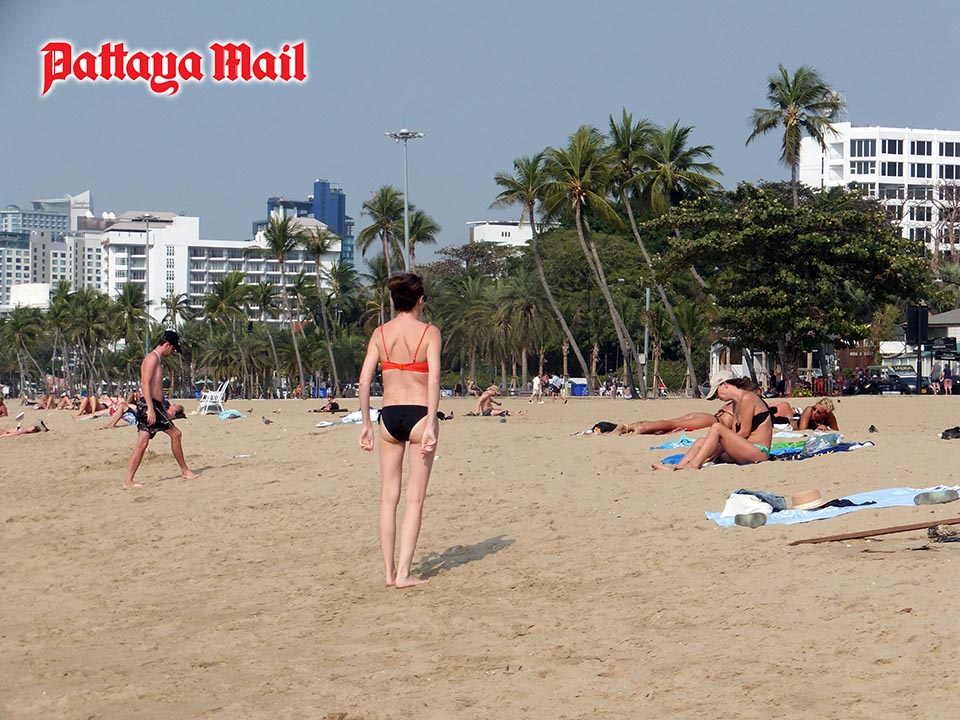Pattaya hotels face wage hike challenge amid calls for higher tourist spending
Pattaya hotels prepare for payroll increases as new 400-baht minimum wage takes effect on July 1, targeting large hotels and entertainment venues.
PATTAYA, Thailand – As Thailand prepares to implement a significant increase in minimum daily wages starting July 1, Pattaya’s hotel and service industries are gearing up to shoulder heavier labor cost burdens, particularly in establishments classified as two-star or higher, or those with 50 rooms and above.
The National Wage Committee has approved a raise in the minimum wage to 400 baht per day across Bangkok. In other provinces, including Chonburi, the increase will apply selectively to hotels with 50 rooms or more, hotel restaurants, and entertainment venues licensed under the Service Establishment Act—such as karaoke bars and cocktail lounges. Smaller hotels and other sectors outside these criteria are not yet affected.
The decision, backed by two-thirds of the tripartite committee comprising employer, employee, and government representatives, is expected to impact over 700,000 workers nationwide, especially those in Thailand’s thriving tourism hubs like Pattaya.
“This wage adjustment is the result of careful economic analysis and extensive stakeholder discussions,” said Boonsong Tapchaiyuth, Permanent Secretary of the Ministry of Labor. “We began with the tourism and service sectors because they are the most resilient and best positioned to absorb the change.”
Pattaya hotel operators—already grappling with rising electricity rates, inflationary food costs, and intense seasonal competition—warn the wage hike will further strain profit margins, particularly for mid-sized properties operating on tight budgets.
Many are reviewing staffing models and considering digital transformation to optimize costs. However, operators also acknowledge the potential benefit: improved wages could help address Thailand’s chronic labor shortages in tourism by attracting more domestic and migrant workers.
“It’s definitely going to hit our payroll hard,” said the manager of a 3-star beachfront hotel in Pattaya. “But if it helps reduce staff turnover and raises service standards, we’ll find ways to adapt.”
“Careful analysis and collaboration guided this wage adjustment,” says Boonsong Tapchaiyuth, Ministry of Labor. “Tourism and service sectors lead as the most resilient to adapt.”
Addressing concerns about cross-border labor movement, Boonsong confirmed no Cambodian workers have submitted requests to return home amid the wage hike or regional tensions.
“Cambodian workers continue to work as normal,” Boonsong said, disputing speculation that tighter Thai-Cambodian border patrols might trigger labor outflows.
To ease the financial transition, the Labor Ministry, in collaboration with six state and private banks, has launched a 30-billion-baht credit scheme to help affected employers access capital for operational adjustments.
Boonsong also provided an update on Thai laborers abroad, stating that over 40,000 Thai workers in Israel remain safe despite ongoing regional tensions. The Ministry of Labor has established a dedicated crisis monitoring center in close coordination with the Ministry of Foreign Affairs and national security agencies, with Thai labor attachés on the ground reporting every two hours.
With Pattaya’s economy heavily dependent on tourism and hospitality, the July 1 wage increase marks a new chapter in Thailand’s effort to promote equitable growth and improve living standards. Still, many hotel operators worry that unless room rates and tourist spending rise in tandem, the wage policy may squeeze small businesses further.
Cambodian workers remain on duty as usual despite wage hike and border patrol concerns, says Boonsong.



